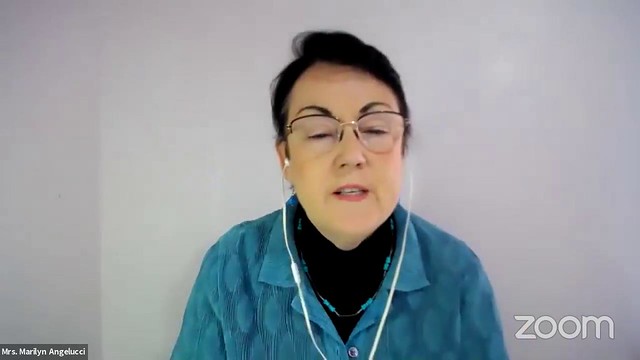Europe and the Middle East—After eight sessions focusing on Korean reunification, ILC2021 concluded with a spirit of accomplishment and hope. To see a the video of the Closing Session, click here.
The International Leadership Conference (ILC) took place from April 26 to May 1, 2021, with the theme “Toward a Peaceful Reunification on the Korean Peninsula: Creating the Foundation for a Unified World.”
Each of the UPF associations took responsibility for a different online session, in which the main theme was discussed by heads of government, first ladies, parliamentarians, leaders from the fields of religion, the media, academia, business, and arts and culture.
In the same week, ILCs were held not only in the Europe-Middle East region but also in Africa, the Americas, the Asia-Pacific region, and Japan—ensuring that audiences around the world were focusing on the same theme of peaceful Korean reunification.
In the Closing Session, held on May 1, 2021, one common question emerged from each of the speakers: “What has an unresolved conflict so far away from Europe got to do with us?”
The moderator of the Closing Session was Marilyn Angelucci, the co-leader for the Middle East of the Family Federation for World Peace and Unification (FFWPU), an organization that is affiliated with UPF.
For Dr. Michael Balcomb, president of FFWPU for Europe and the Middle East, it had become clear that many nations in our region had participated in the 1950-1953 Korean War that was left unresolved. Therefore we have a remaining role to fulfill in assisting its resolution, he said.
Jacques Marion, the co-chair of UPF for Europe and the Middle East, quoted Italian Senator Pier Ferdinando Casini from the Opening Session: It is from “the constant commitment of associations such as UPF that a decisive contribution can be given to strengthening a spirit of collaboration between the two Koreas, in the awareness that it will be the most profitable political investment in view of resolving regional crises and building world peace.”
Mr. Marion added, “Representing each area of activity of the UPF associations—as heads of state, parliamentarians, religious leaders, media professionals, scholars and business leaders—their diversity of expertise can address the problems from different and complementary perspectives.”
He reminded the audience that UPF founders Rev. Dr. Sun Myung Moon and Dr. Hak Ja Han Moon strongly believed “that the world needs to come together again and take responsibility to resolve the division of the Korean Peninsula.”
Dr. Katsumi Otsuka, the co-chair of UPF for Europe and the Middle East, brought up the example of the reunification of Germany that had brought great hope to the Korean Peninsula. “It was unforgettable that the German reunification brought peace and tremendous economic development to Europe,” Dr. Otsuka said. “The established peace in Europe sent a warm spring breeze to the people of Korea at that time. They came to have a hope that the reunification of Korea would be realized soon.”
He quoted Mother Moon, “The Korean Peninsula division is not simply a leftover of the Cold War in the 20th century. More than that, the division of Korea is an unavoidable major issue for realizing not only East Asian regional stability but also for world peace.”
Dr. Otsuka, like Dr. Balcomb before him, emphasized the UPF founders’ repeated message—that both peace in the world and peaceful reunification of the Korean Peninsula cannot occur without God’s support and the application of godly values in the reconciliation efforts.
Carolyn Handschin-Moser, the vice president for Europe and the Middle East of the Women’s Federation for World Peace (WFWP), another affiliated organization, reported on the International Association of First Ladies for Peace (IAFLP) session. Regarding Korean reunification, she said the first ladies and other women leaders at the session recommended practical projects that can bring people together in one common humanity.
She referred to the possibility of bringing women from South and North together at the Demilitarized Zone (DMZ) to meet and campaign for a DMZ safe zone. She emphasized: “Political systems alone do not make peace. It is in the hearts of people that peace is made.” She said she was looking forward to bringing a “wide range of women experts to look at the situation, even from far away, to influence change.”
Mr. Marion reported on the ILC’s Opening Session and the eight UPF association sessions that had gathered 50 speakers and included cooperation with Japan in two of those sessions. He explained that the eight associations would form expert working groups to support efforts for peace on the Korean Peninsula.
Dr. Otsuka explained that the next global International Leadership Conferences and Rally of Hope would commemorate the 30th anniversary of the UPF founders’ visit to Pyongyang in December 1991. They made that visit as a peace mission, despite knowing that, with their reputation as anti-communist campaigners, they were risking their lives. Dr. Otsuka said that UPF webinars around the world in 2021 would commemorate that visit to rekindle the hope that it had brought.
Mr. Marion mentioned the recent establishment by Mother Moon of Think Tank 2022, which will be dedicated to the peaceful reunification of the Korean Peninsula. It will highlight the expert working groups of each of the UPF associations.
Mr. Marion added: “Seventy years ago, the world fought in Korea, but left the country divided. Today, it is our founders’ conviction that the world needs to come together again and take responsibility to resolve the division of the Korean Peninsula, which is a focus point for the power struggle among the major nations of the world.”

